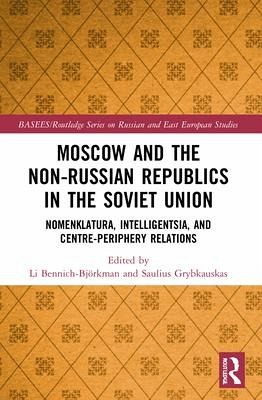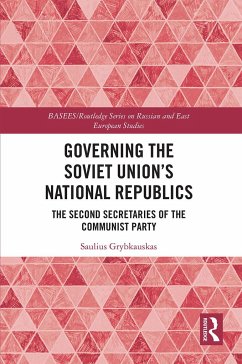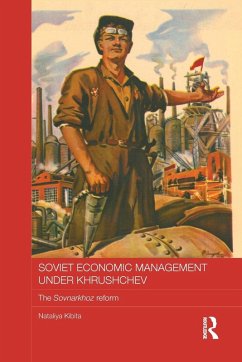
Moscow and the Non-Russian Republics in the Soviet Union
Nomenklatura, Intelligentsia and Centre-Periphery Relations
Herausgegeben: Bennich-Björkman, Li; Grybkauskas, Saulius
Versandkostenfrei!
Versandfertig in 6-10 Tagen
45,99 €
inkl. MwSt.

PAYBACK Punkte
23 °P sammeln!
This book examines what came to determine the local power and character of the Communist party-state at the level of the national non-Russian republics. It discusses how, although the Soviet Union looked centralised and monolithic to outsiders, local party-states formed their own fiefdoms and had very considerable influence over many policies areas within their republics. It argues that local party-states were shaped by two decisive relationships - to the central Communist party in Moscow and to local constituencies, especially to the local intelligentsia and the creative professions who const...
This book examines what came to determine the local power and character of the Communist party-state at the level of the national non-Russian republics. It discusses how, although the Soviet Union looked centralised and monolithic to outsiders, local party-states formed their own fiefdoms and had very considerable influence over many policies areas within their republics. It argues that local party-states were shaped by two decisive relationships - to the central Communist party in Moscow and to local constituencies, especially to the local intelligentsia and the creative professions who constituted the local party-states' biggest potential adversaries. It shows how local party-states negotiated stability and their own survival, and contends that the effects of "Sovietisation" continue to be felt in the independent states which succeeded the republics, particularly in the field of the relationship with Moscow, which remains of immense importance to these countries.














